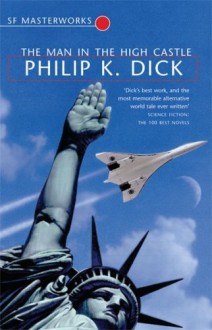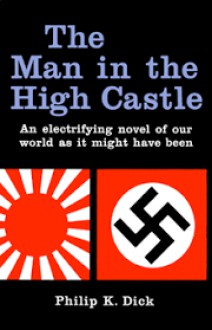
Last night I decided to binge-watch season 2 of Amazon's The Man in the High Castle. If you're unfamiliar with the show, it's based on a 1962 novel by Philip K. DIck premised on the idea that the United States lost the Second World War. With its defeat the U.S. is a divided and occupied land, with the Japanese in charge of the West Coast and the Germans ruling everything east of the Great Plains. The novel itself is one of my all time favorites and so far I'm enjoying the show (with a caveat regarding the direction they're taking it regarding the central twist). But watching it has highlighted something that has long bugged me about alternate histories of the war written by Americans.
Simply put, it's the conceit is that the Germany couldn't be defeated without the United States. It's inherent in the majority of U.S.-centric alternate history stories, including Dick's: without America's involvement in the war, the Nazis roll over Europe and become the racist empire everybody not associated with our current administration loves to hate. There are two things I find annoying about this, the first being that it's bogus to anyone with more than a passing history of the war. As much as Americans may hate to admit it, but the Second World War was decided on the Eastern Front: it was the Soviets who were key to destroying the Nazis' empire, not the Americans. From the summer of 1941 onward the bulk of the German war machine was engaged in the Soviets, who ground it down over the course of four years; three out of every four German soldiers killed during the war died on the Eastern Front. While the U.S. aided in this, both through their Lend-Lease program and their assaults on Germany from the west, absent these the Soviet victory was still the probable outcome.
This would be a pedantic complaint were it not for how this reflects our devaluing of the costs involved in this. We don't know exactly how many Soviet soldiers died fighting the Nazis, but the conservative estimate is 8.7 million people. By contrast, the United States lost 139,380 soldiers fighting against the Germans in Europe, which makes for a ratio of 80 Soviet soldiers killed for every American who died in combat. And that Soviet figure is just for the men and women killed in combat: the official total of war dead is 26.6 million, and that's regarded as a conservative estimate as well.
Now, I get why American writers do this, as they're writing for their audience. But it's dangerous in that it perpetuates a conceit that is deeply offensive to lots of people in the world, both the ones who sacrificed and the descendants of those who did. The thing of it is, it doesn't take a huge stretch of the imagination to gin up a scenario that isn't premised on the belief that our participation in the war was indispensable to Germany's defeat. Instead, though, we bask in the conceit that our novice soldiers were the ones who knocked down the Nazis — and then we wonder why the world despises us for it.


 Log in with Facebook
Log in with Facebook 








